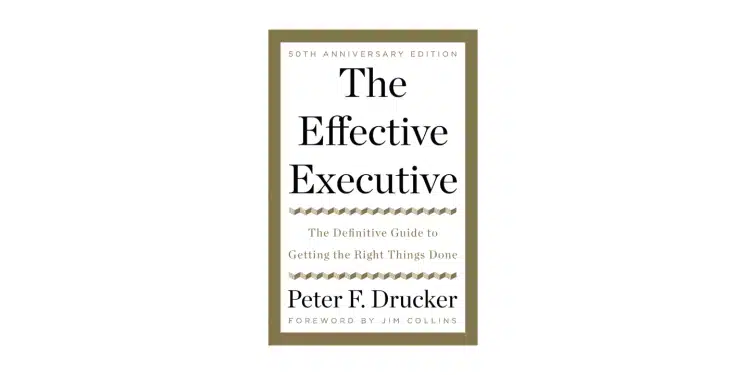The Effective Executive By Peter Drucker
As the economy shifts towards being knowledge-based, the challenge of being an effective executive becomes even greater. In his management classic, Peter Drucker argues that the sole responsibility of the executive is to be effective, defined by getting the right things done.
The responsibilities of the typical worker are constantly changing in the knowledge economy, which requires effective decision making and autonomous action.
To help executives become more effective, Drucker outlines five key steps.
- The first step is to record where time goes. By quantifying how time is spent, executives can make immediate efficiency gains.
- The second step is to focus work on outward contribution. Executives need to think about what contribution they need to make that only they can do, rather than focusing on downward authority.
- The third step is to make strengths productive. Effective executives recognize the strengths of their team members and organise workflows to enable them to be successful in their area of expertise.
- The fourth step is to concentrate on one task at a time and prioritise first things first. Effective executives focus on a steady pace that can be maintained, rather than being beholden to arbitrary deadlines.
- The final step is effective decision making. Critical decision making is the exclusive purview of the executive, and defining the elements of effective decision making is a key first step.
If there is no disagreement in a meeting to discuss a new initiative or plan, rescheduling the meeting and inviting participants to prepare objections for the rescheduled session can help uncover issues that may have been overlooked.
This book is most useful for people who are already running established businesses and looking to optimise their operational management to create compound growth. It emphasises the importance of creating a culture that enables people to make changes and improve company performance. In the knowledge economy, every person needs to think about how they work, and it is up to leadership to create a culture that encourages and enables this. By following the five steps outlined in this book, executives can become more effective and better equipped to navigate the challenges of the knowledge economy.



Get involved!
Comments